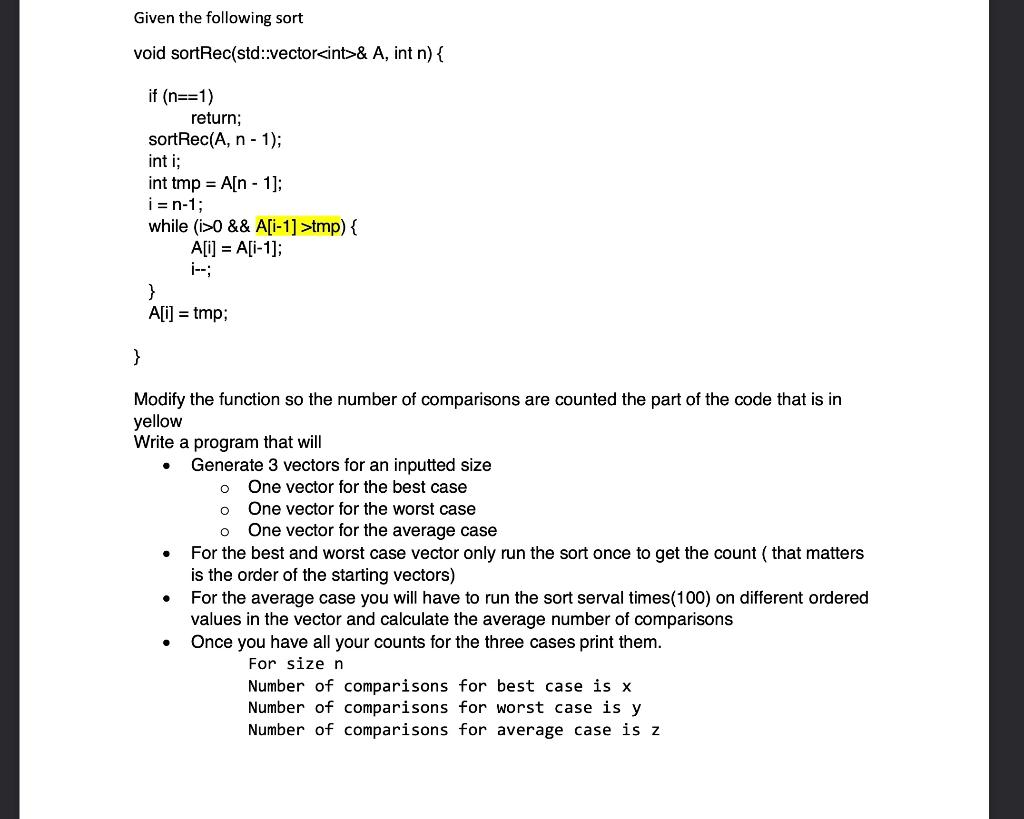Answered step by step
Verified Expert Solution
Question
1 Approved Answer
Given the following sort void sortRec(std::vector>& A, int n ) { if (n==1) return; sortRec (A,n1); int i; int tmp=A[n1]; i=n1; while (i>0 && A[i1]>tmp

Step by Step Solution
There are 3 Steps involved in it
Step: 1

Get Instant Access to Expert-Tailored Solutions
See step-by-step solutions with expert insights and AI powered tools for academic success
Step: 2

Step: 3

Ace Your Homework with AI
Get the answers you need in no time with our AI-driven, step-by-step assistance
Get Started


